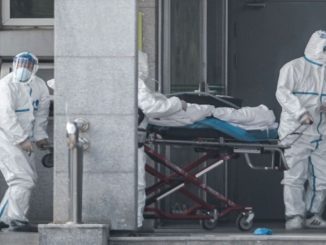
Secretary of State Mike Pompeo recently acknowledged widespread skepticism of the Trump administration’s Middle East peace plan, but said he hoped people would give it a chance, CNN informed.
Pompeo described the plan as “very detailed, one might argue unexecutable,” and said it “may be rejected,” according to an audio recording obtained by CNN of a private meeting of the Conference of Presidents of Major American Jewish Organizations on Tuesday.
“It may be rejected,” Pompeo said. “It could be in the end, folks will say, ‘it’s not particularly original, it doesn’t particularly work for me, that is, it’s got two good things and nine bad things, I’m out’.”
Pompeo said the State Department has given “quite a bit of consideration” to what it would do if the plan “doesn’t gain traction,” and said there are “no guarantees that we’re the ones that unlock it.”
“We hope that there’s enough vision here, enough space, that lots of countries will see this as an opportunity to really engage in this process,” Pompeo added.
When asked Sunday about the Post’s reporting on Pompeo’s comments, President Donald Trump said, “Well, let’s see what happens. We’re doing our best to help the Middle East to get a peace plan, and (Pompeo) may be right, I think most people would say that. I think we have a good chance, but we’ll see what happens.”
“Most people think it can’t be done, I think it probably can,” Trump said. “But as I say often, we’ll see what happens.”
Trump administration officials have offered few details about the political portion of the long-awaited Israeli-Palestinian peace plan. The effort is being led by the President’s son-in-law and White House senior adviser, Jared Kushner.
Kushner is expected to discuss the economic portion of the Middle East peace plan at a conference in Bahrain this month. The White House previously announced the economic portion is aimed at encouraging investing capital in the West Bank, Gaza, and the region, CNN writes.
The plan discusses four major components: infrastructure, industry, empowering and investing in people, and governance reforms to help make the area as appealing as possible to investors.




Be the first to comment